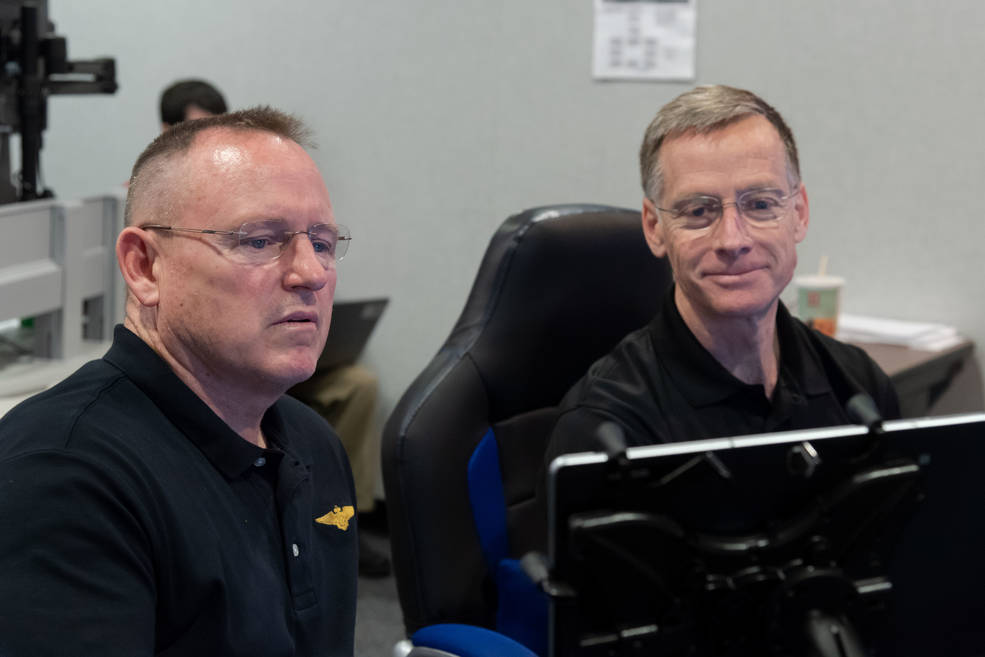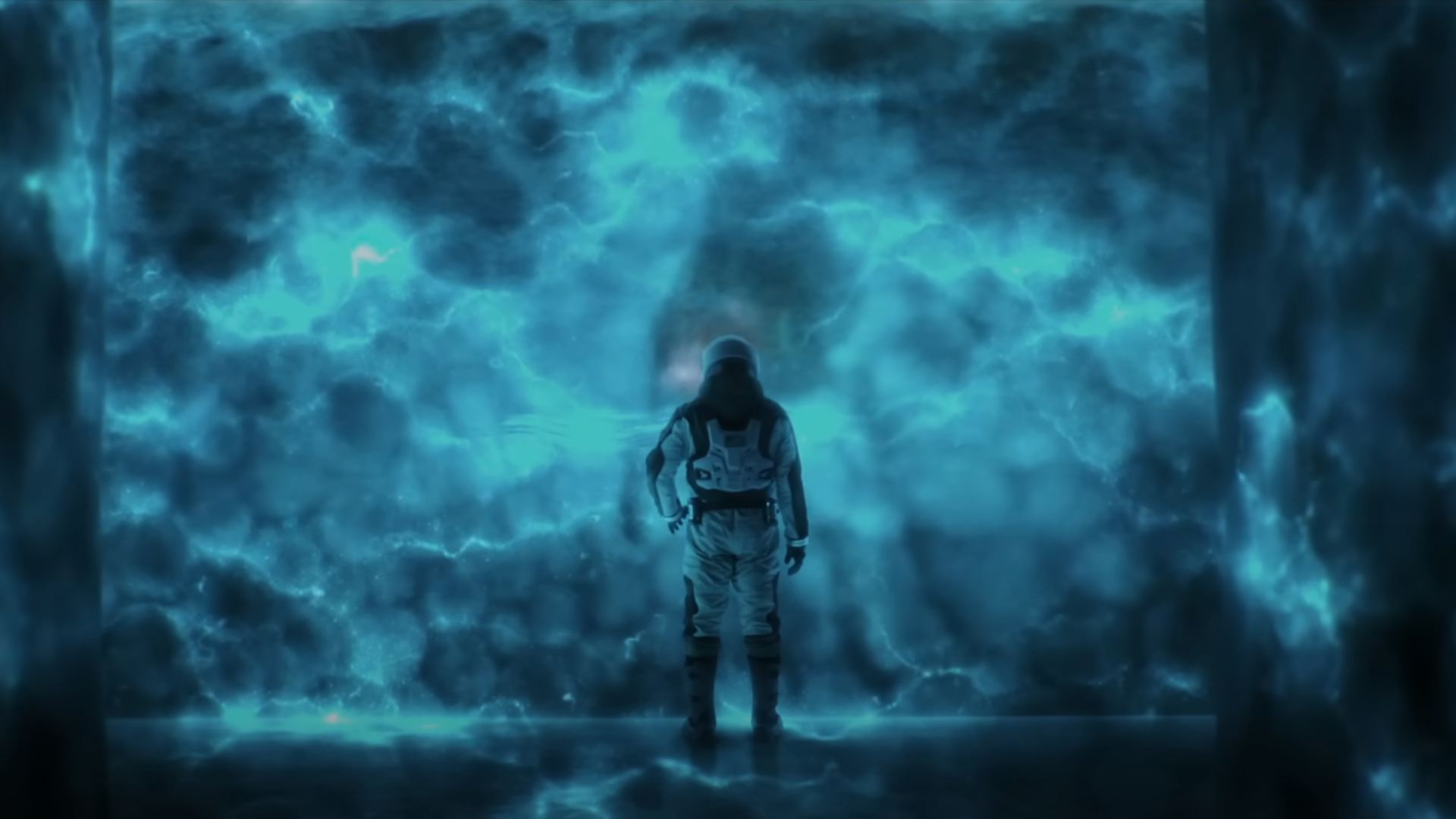I’m taking on a new mission, one that keeps my feet planted here firmly on Earth and prioritizes my most important crew – my family. I’ll still be working hard with the #Starliner team and the @NASA_Astronauts on our crew. pic.twitter.com/PgdhPqwYQSOctober 7, 2020
Chris Ferguson won't command the first crewed flight of Boeing's Starliner spacecraft after all.
Ferguson, a veteran astronaut who commanded NASA's final space shuttle mission in 2011 before leaving the agency for Boeing, has withdrawn from the company's Crew Flight Test in 2021, citing personal reasons. The test mission will send a CST-100 Starliner spacecraft to the International Space Station on an astronaut-carrying shakeout cruise.
Ferguson will be replaced in the commander's seat by NASA astronaut Butch Wilmore, who has been training as a backup alongside Ferguson and fellow crewmates Mike Fincke and Nicole Mann, both of whom are also NASA astronauts, for more than two years.
Related: Boeing's 1st Starliner flight test in photos

"Butch will be able to step in seamlessly, and his previous experience on both space shuttle and space station missions make him a valuable addition to this flight," Kathy Lueders, associate administrator of NASA’s Human Exploration and Operations Mission Directorate, said in a statement.
Wilmore has racked up a total of 178 days in space over two missions, a space shuttle flight to the orbiting lab in 2009 and a nearly 6-month stay aboard the station in 2014 and 2015. During that latter mission, Wilmore conducted four spacewalks.
Ferguson said that stepping down was a very difficult decision and that he remains committed to helping get Starliner up and running. "But next year is very important for my family, and I have made several commitments which I simply cannot risk missing," he said in a video statement posted to Twitter today (Oct. 7).
Breaking space news, the latest updates on rocket launches, skywatching events and more!
"Chris has been a talented member of the crew for this mission," Lueders said. "The NASA and Boeing Commercial Crew teams sincerely appreciate the invaluable work he has completed, and he will continue to lead in the development of Starliner, which will help ensure that the Starliner Crew Flight Test will be a success."
In 2014, Boeing signed a $4.2 billion contract with NASA's Commercial Crew Program to fly at least six operational missions to and from the space station with Starliner. SpaceX signed a similar, $2.6 billion deal around the same time, which Elon Musk's company will fulfill using its Crew Dragon capsule.
SpaceX has already flown its version of Crew Flight Test — the Demo-2 mission, which carried NASA astronauts Bob Behnken and Doug Hurley to and from the orbiting lab this summer. SpaceX is now gearing up for its first operational flight to the station, Crew-1, which is scheduled to launch on Oct. 31.
Starliner's road has been rockier. In December 2019, the capsule failed to meet up with the station as planned during its debut mission, the uncrewed Orbital Flight Test. Boeing will refly that mission, likely early next year, before putting astronauts aboard for Crew Flight Test.
Ferguson's departure isn't the first crew shakeup for Crew Flight Test. Fincke came aboard in January 2019 after Eric Boe was pulled for medical reasons.
Mike Wall is the author of "Out There" (Grand Central Publishing, 2018; illustrated by Karl Tate), a book about the search for alien life. Follow him on Twitter @michaeldwall. Follow us on Twitter @Spacedotcom or Facebook.
Join our Space Forums to keep talking space on the latest missions, night sky and more! And if you have a news tip, correction or comment, let us know at: community@space.com.

Michael Wall is a Senior Space Writer with Space.com and joined the team in 2010. He primarily covers exoplanets, spaceflight and military space, but has been known to dabble in the space art beat. His book about the search for alien life, "Out There," was published on Nov. 13, 2018. Before becoming a science writer, Michael worked as a herpetologist and wildlife biologist. He has a Ph.D. in evolutionary biology from the University of Sydney, Australia, a bachelor's degree from the University of Arizona, and a graduate certificate in science writing from the University of California, Santa Cruz. To find out what his latest project is, you can follow Michael on Twitter.
-
monkeyonmars I don't blame him, I wouldn't want to fly on this disaster waiting to happen either.Reply -
Bobsdesk Agreed, Boeing spacecraft would be a death trap!Reply
I'll never board a boeing airliner again. -
Bob Braan No kidding. Personal reasons like he would like to continue living.Reply
Starliner failed it's first mission to ISS.
2 faulty software issues.
"A newly disclosed timer error on the Dec. 20 flight had the potential to lead to "catastrophic" failure."
It failed a previous mission because the parachute wasn't attached correctly.
346 died in crashes of newly build Boeing 737 Max aircraft.
Faulty MCAS software to try to correct faulty aerodynamic hardware.
25 are grounded again because fuel sealer is missing which could cause a fire.
One mistake after another.
No thanks.
